Expertise provided by Kevin Matthews from buildingbread.com
Inflation plays a role, in the economy affecting market sectors in various ways. Financial stocks in particular are closely tied to inflation and interest rates influencing their performance significantly. This article explores how inflation impacts stocks. It discusses which finance sectors are more resilient to inflation. It also provides stock strategies for high inflation. It also examines the impact of inflation on fixed income investments.
Financial Stocks That Are Inflation-Resistant
Stocks show resilience during periods of high inflation. like Banks, credit card companies, and payment processors are included. These stocks are strong because of their business models. They benefit from rising interest rates. This is a response to inflation.
Banks:
Banks typically profit from the interest rate spread between what they pay on deposits and what they charge on loans. With rising inflation, the Federal Reserve often raises interest rates to combat it. Higher interest rates allow banks to charge more for loans boosting their profits.
Credit Card Companies:
Credit card companies also benefit from interest rates. They can charge more on balances, which leads to higher revenue.
Moreover, when inflation is on the rise, individuals tend to turn to credit to manage the elevated expenses. In terms of payment processors, they do not profit from the surge in rates. But they usually see a boost in transactions as prices and transactions increase in inflation.
The Impact of Rising Inflation on Financial Stocks
There seems to be a connection between inflation, interest rates and financial stocks. To grasp this relationship, it's crucial to delve into the details;
Rising Inflation
Prices of goods and services rise due to inflation. It is influenced by factors like high demand, supply chain problems, or higher production costs.
Federal Reserve Action;
In response to inflation, the Federal Reserve usually raises interest rates. High interest rates cause borrowing. They can reduce economic activity and help curb inflation.
Impact on Financial Stocks
Banks:
With rising interest rates, banks can impose rates on loans. They can also impose them on existing adjustable-rate loans. This will boost their interest income.
Credit Card Companies:
Similarly, credit card companies can raise interest rates on balances. This increases their revenue from finance charges.
Payment Processors:
They are not directly impacted by interest rate changes. But, they will gain from more transactions as inflation raises prices.
Why Increasing Interest Rates are Advantageous for Financial Stocks
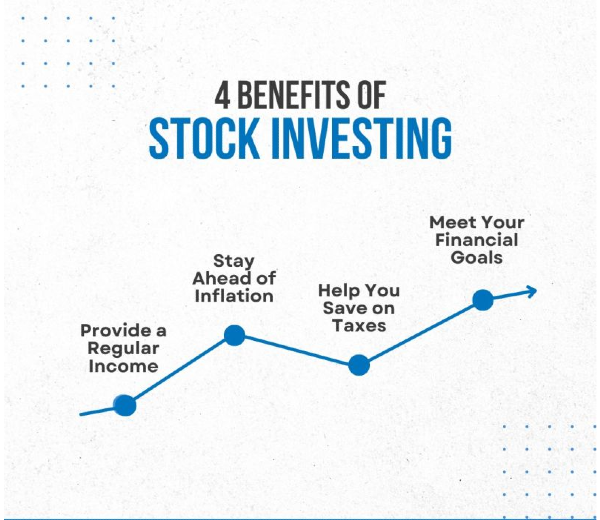
Rising interest rates help financial stocks. They are good for banks and credit card companies. Here's the reason why;
Boosted Profit Margins:
When interest rates go up, banks and credit card companies can raise their charges on loans and credit. This boosts their profit margins. For instance, if a bank was charging a 3% interest rate on a mortgage. If it raises to 7% due to increased rates, the bank's earnings from that loan notably grow.
Higher Interest Income:
As interest rates rise, the income generated from loans increases. This is a big help. It is especially good for banks with large portfolios of loans with variable rates.
Credit Card Revenues:
Credit card companies can charge higher interest rates on revolving credit. This increases their revenues from finance charges.
However, this positive impact can be mitigated if a recession is anticipated. During downturns, loan demand could drop and defaults rise. This would hurt financial stocks.
The Role of Inflation in Fixed Income Investments
Inflation can have a detrimental effect on fixed income investments. Fixed income securities, such as bonds, offer a set interest payment over time. When inflation rises, these payments lose value. The interest received buys less. Here's how inflation impacts fixed income investments:
Eroding Value:
The fixed payments from bonds become less valuable in real terms as inflation rises. For example, a bond paying 3% interest may provide a decent return when inflation is at 1%. However, if inflation rises to 4%, the real return becomes negative.
Interest Rate Risk:
When inflation increases, interest rates typically rise. This causes the prices of existing bonds to fall. New bonds are issued at higher rates, which makes older bonds with lower rates less attractive.
Inflation-Protected Securities:
Some fixed income investments aim to fight inflation. An example is Treasury Inflation-Protected Securities (TIPS). The principal of TIPS increases with inflation. This provides a hedge against rising prices.
Investing in Financial Stocks During High Inflation
You need a strategy to invest in financial stocks during high inflation. Here are some strategies to consider:
Focus on Banks and Credit Card Companies:
When it comes to banks and credit card companies they typically do better when interest rates are, on the rise. These types of stocks tend to hold up during times of inflation.
Diversify Within the Financial Sector:
It's an idea to spread out your investments within the sector even if banks and credit card companies are doing well. Adding payment processors and insurance companies to your portfolio can help. This is especially true when inflation is a concern.
i. Monitor Economic Indicators:
Keep an eye on indicators like inflation rates, interest rates and GDP growth. Understanding these factors can help you make investment choices. They are based on the economy.
ii. Avoid Overleveraged Companies:
Debt-laden companies may struggle when interest rates rise. This is because their borrowing costs will increase. Look for companies with strong balance sheets to minimize risks.
iii. Consider Inflation-Protected Securities:
Are you worried about inflation hurting your fixed income investments? If so, consider adding TIPS to your mix. TIPS are designed to protect against inflation.
Historical Performance of Financial Stocks During Inflationary Periods
Looking back at data, financial stocks have generally done well during inflation. This was due to rising interest rates. But, this trend may not always hold true. This is especially true if a recession is expected.
1980s Inflation:
In the 1970s and early 1980s, inflation was high. Financial stocks, especially banks', did well due to the high interest rates. However, the financial sector faced a downturn during the recession, in the 1980s.
2000s Housing Bubble:
The housing bubble of the 2000s led to the 2008 crisis. It was fueled by low interest rates and excessive borrowing. The burst had an impact on stocks. It highlighted the risks of high leverage and downturns.
Recent Trends:
In recent years, financial stocks have done well when inflation was high. For example, in 2022, higher interest rates increased revenue. This helped banks and credit card companies. However concerns about a recession tempered investor optimism.
The Current Economic Climate and Its Impact on Financial Stocks
The current economic landscape plays a role in shaping the performance of stocks. Presently we are facing a situation where inflation's high while worries about a recession persist.
2022 Scenario:
In 2022 inflation rose sharply prompting the Federal Reserve to raise interest rates. This move should have helped stocks. But, fear of a recession made investors cautious. Many were concerned that higher interest rates could slow growth. This could lead to loan defaults and less borrowing demand.
Current Outlook:
Looking ahead, financial stocks will benefit more from interest rates. But, this will only happen if the economy avoids a recession. A slowdown in the economy may reduce the benefits of interest rates. This is because credit risk may rise and loan demand may decrease.
Weighing the Risks and Rewards of Financial Stocks During Inflation

Investing, in stocks amid periods of inflation presents a mix of opportunities and risks. On one side the surge in interest rates can enhance the profitability of banks and credit card companies. On the other hand, the likely downturn adds uncertainty.
To maneuver through this scenario investors should;
• Concentrate on Sound Financially Companies:
Focus on investing in banks and credit card companies first. They have strong finances and careful lending.
• Diversify Investments:
Expand within the sector. This will diversify risk and seize opportunities.
• Stay Informed:
Stay informed about indicators. Also, learn central bank strategies. They help you foresee market shifts.
• Consider Inflation-Protected Securities:
To protect against inflation's impact on fixed income, consider adding TIPS to your investments. TIPS stands for Treasury Inflation Protected Securities.
Conclusion
Understanding inflation is key. It helps investors grasp interest rates and financial stocks. This understanding helps them make informed decisions. As historical records reveal, financial stocks can thrive in such times. But, thinking about the economy is crucial. It helps for navigating the complexities of the market.
For more information watch this video:
https://youtu.be/JDPOUCNEJVc




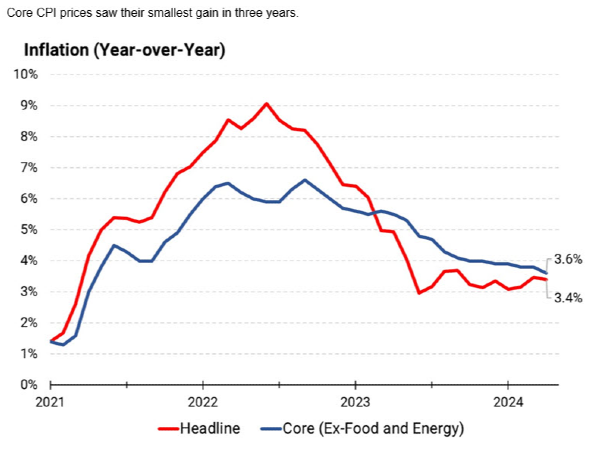






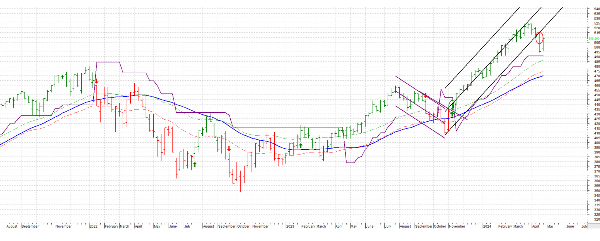


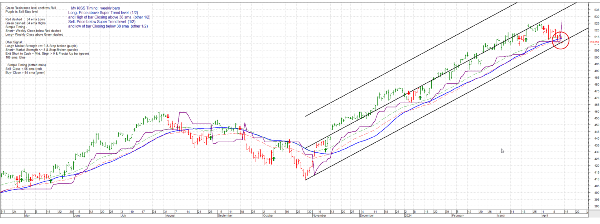




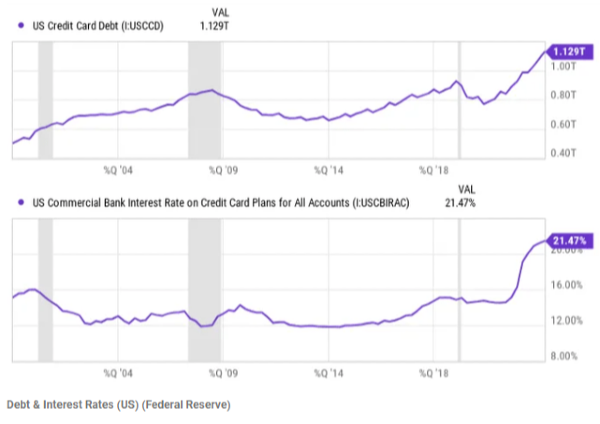










Expertise provided by Kevin Matthews from buildingbread.com
Inflation plays a role, in the economy affecting market sectors in various ways. Financial stocks in particular are closely tied to inflation and interest rates influencing their performance significantly. This article explores how inflation impacts stocks. It discusses which finance sectors are more resilient to inflation. It also provides stock strategies for high inflation. It also examines the impact of inflation on fixed income investments.
Financial Stocks That Are Inflation-Resistant
Stocks show resilience during periods of high inflation. like Banks, credit card companies, and payment processors are included. These stocks are strong because of their business models. They benefit from rising interest rates. This is a response to inflation.
Banks:
Banks typically profit from the interest rate spread between what they pay on deposits and what they charge on loans. With rising inflation, the Federal Reserve often raises interest rates to combat it. Higher interest rates allow banks to charge more for loans boosting their profits.
Credit Card Companies:
Credit card companies also benefit from interest rates. They can charge more on balances, which leads to higher revenue. Moreover, when inflation is on the rise, individuals tend to turn to credit to manage the elevated expenses. In terms of payment processors, they do not profit from the surge in rates. But they usually see a boost in transactions as prices and transactions increase in inflation.
The Impact of Rising Inflation on Financial Stocks
There seems to be a connection between inflation, interest rates and financial stocks. To grasp this relationship, it's crucial to delve into the details;
Rising Inflation
Prices of goods and services rise due to inflation. It is influenced by factors like high demand, supply chain problems, or higher production costs.
Federal Reserve Action;
In response to inflation, the Federal Reserve usually raises interest rates. High interest rates cause borrowing. They can reduce economic activity and help curb inflation.
Impact on Financial Stocks
Banks:
With rising interest rates, banks can impose rates on loans. They can also impose them on existing adjustable-rate loans. This will boost their interest income.
Credit Card Companies:
Similarly, credit card companies can raise interest rates on balances. This increases their revenue from finance charges.
Payment Processors:
They are not directly impacted by interest rate changes. But, they will gain from more transactions as inflation raises prices.
Why Increasing Interest Rates are Advantageous for Financial Stocks
Rising interest rates help financial stocks. They are good for banks and credit card companies. Here's the reason why;
Boosted Profit Margins:
When interest rates go up, banks and credit card companies can raise their charges on loans and credit. This boosts their profit margins. For instance, if a bank was charging a 3% interest rate on a mortgage. If it raises to 7% due to increased rates, the bank's earnings from that loan notably grow.
Higher Interest Income:
As interest rates rise, the income generated from loans increases. This is a big help. It is especially good for banks with large portfolios of loans with variable rates.
Credit Card Revenues:
Credit card companies can charge higher interest rates on revolving credit. This increases their revenues from finance charges. However, this positive impact can be mitigated if a recession is anticipated. During downturns, loan demand could drop and defaults rise. This would hurt financial stocks.
The Role of Inflation in Fixed Income Investments
Inflation can have a detrimental effect on fixed income investments. Fixed income securities, such as bonds, offer a set interest payment over time. When inflation rises, these payments lose value. The interest received buys less. Here's how inflation impacts fixed income investments:
Eroding Value:
The fixed payments from bonds become less valuable in real terms as inflation rises. For example, a bond paying 3% interest may provide a decent return when inflation is at 1%. However, if inflation rises to 4%, the real return becomes negative.
Interest Rate Risk:
When inflation increases, interest rates typically rise. This causes the prices of existing bonds to fall. New bonds are issued at higher rates, which makes older bonds with lower rates less attractive.
Inflation-Protected Securities:
Some fixed income investments aim to fight inflation. An example is Treasury Inflation-Protected Securities (TIPS). The principal of TIPS increases with inflation. This provides a hedge against rising prices.
Investing in Financial Stocks During High Inflation
You need a strategy to invest in financial stocks during high inflation. Here are some strategies to consider:
Focus on Banks and Credit Card Companies:
When it comes to banks and credit card companies they typically do better when interest rates are, on the rise. These types of stocks tend to hold up during times of inflation.
Diversify Within the Financial Sector:
It's an idea to spread out your investments within the sector even if banks and credit card companies are doing well. Adding payment processors and insurance companies to your portfolio can help. This is especially true when inflation is a concern.
i. Monitor Economic Indicators:
Keep an eye on indicators like inflation rates, interest rates and GDP growth. Understanding these factors can help you make investment choices. They are based on the economy.
ii. Avoid Overleveraged Companies:
Debt-laden companies may struggle when interest rates rise. This is because their borrowing costs will increase. Look for companies with strong balance sheets to minimize risks.
iii. Consider Inflation-Protected Securities:
Are you worried about inflation hurting your fixed income investments? If so, consider adding TIPS to your mix. TIPS are designed to protect against inflation.
Historical Performance of Financial Stocks During Inflationary Periods
Looking back at data, financial stocks have generally done well during inflation. This was due to rising interest rates. But, this trend may not always hold true. This is especially true if a recession is expected.
1980s Inflation:
In the 1970s and early 1980s, inflation was high. Financial stocks, especially banks', did well due to the high interest rates. However, the financial sector faced a downturn during the recession, in the 1980s.
2000s Housing Bubble:
The housing bubble of the 2000s led to the 2008 crisis. It was fueled by low interest rates and excessive borrowing. The burst had an impact on stocks. It highlighted the risks of high leverage and downturns.
Recent Trends:
In recent years, financial stocks have done well when inflation was high. For example, in 2022, higher interest rates increased revenue. This helped banks and credit card companies. However concerns about a recession tempered investor optimism.
The Current Economic Climate and Its Impact on Financial Stocks
The current economic landscape plays a role in shaping the performance of stocks. Presently we are facing a situation where inflation's high while worries about a recession persist.
2022 Scenario:
In 2022 inflation rose sharply prompting the Federal Reserve to raise interest rates. This move should have helped stocks. But, fear of a recession made investors cautious. Many were concerned that higher interest rates could slow growth. This could lead to loan defaults and less borrowing demand.
Current Outlook:
Looking ahead, financial stocks will benefit more from interest rates. But, this will only happen if the economy avoids a recession. A slowdown in the economy may reduce the benefits of interest rates. This is because credit risk may rise and loan demand may decrease.
Weighing the Risks and Rewards of Financial Stocks During Inflation
Investing, in stocks amid periods of inflation presents a mix of opportunities and risks. On one side the surge in interest rates can enhance the profitability of banks and credit card companies. On the other hand, the likely downturn adds uncertainty. To maneuver through this scenario investors should;
• Concentrate on Sound Financially Companies:
Focus on investing in banks and credit card companies first. They have strong finances and careful lending.
• Diversify Investments:
Expand within the sector. This will diversify risk and seize opportunities.
• Stay Informed:
Stay informed about indicators. Also, learn central bank strategies. They help you foresee market shifts.
• Consider Inflation-Protected Securities:
To protect against inflation's impact on fixed income, consider adding TIPS to your investments. TIPS stands for Treasury Inflation Protected Securities.
Conclusion
Understanding inflation is key. It helps investors grasp interest rates and financial stocks. This understanding helps them make informed decisions. As historical records reveal, financial stocks can thrive in such times. But, thinking about the economy is crucial. It helps for navigating the complexities of the market.
For more information watch this video:
https://youtu.be/JDPOUCNEJVc